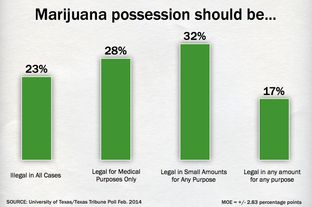Turns out he’s been a practitioner of it for some time.

Still not Greg Abbott
Equal pay for women is in the spotlight of the Texas governor’s race, and figures from Attorney General Greg Abbott’s state agency show most female assistant attorneys general make less on average than do men in the same job classification.
Abbott’s office said the difference is explained by the amount of time that the men have been licensed as lawyers and have served at the agency.
But drilling down into different classifications of assistant attorney general, the figures provided by Abbott’s office show there isn’t always a direct correlation between such experience and pay.
And of the top 20 highest-paid employees at the agency, just three are women, February salary figures provided to the San Antonio Express-News show. Of the 100 top positions, 37 are held by women.
Abbott’s office said that since he became attorney general in December 2002, the number of female lawyers in his office has increased by 71, or 23 percent.
[…]
The Texas attorney general’s office has more than 4,000 employees, nearly 2,900 of them women. The office defends state laws, serves as legal counsel to state agencies and provides legal opinions, including hundreds of open records requests every year. The office also oversees the collection of court-ordered child support and administers the state crime victims compensation fund.
Overall, male employees make an average of $60,200 a year, and women make $44,708. Those averages, however, don’t take into account differing job classifications.
Looking at the 722 assistant attorneys general under Abbott, the average salary for 343 men is $79,464 while the average salary for 379 women is $73,649.
Abbott’s office said the men on average had more than 16 years of being licensed, while the women had nearly 14 years. The men had an average of nearly 104 months of service, while the women had more than 92 months, his office said.
Of seven different classifications of assistant attorneys general, the average salary for men is higher than the average salary for women in six of them, with the difference ranging from $647 to $4,452. In one category, the average salary for women is $3,512 higher than that for men.
In three categories, the women on average either had more years of service or had been licensed longer, or both, despite being paid less, according to figures from the attorney general’s office. In the latter case, the attorney general’s office noted the salaries were almost identical — the men’s average salary was $122,528, while the women made $647 less while having more experience.
In the one category of assistant attorney general in which women were paid more than men, the women on average had more years of service at the agency, but fewer years licensed.
[…]
Katie Bardaro, lead economist for Seattle-based PayScale, cautioned that a number of factors go into setting pay, even for people with the same job title. PayScale collects data from employees and people with job offers and conducts studies that include a look at men and women in the workforce.
“Even though they have the same title, it doesn’t mean they have the same characteristics. They might not have the same day-to-day responsibilities. They might not have the same years of experience, the same education, the same management responsibilities,” she said.
There’s something to what Ms. Bardaro says, but 1) if the male attorneys generally have the kind of duties and responsibilities that come with higher pay, that in itself is telling, and 2) one might expect there to be more examples of women having higher pay if this were just a matter of chance and distribution and not something systemic. Clearly, there’s a bunch of bad negotiators in that office. The bottom line is that this is a pretty inconvenient set of facts for a guy who’s trying to say that no, really, he does support equal pay.
And then there’s this.
Republican Attorney General Greg Abbott would have vetoed the equal-pay measure sponsored by his Democratic opponent for governor, state Sen. Wendy Davis, his campaign said Wednesday.
Abbott’s answer meets a key Davis campaign issue head on and puts the candidates squarely on opposite sides of it.
[…]
Davis has been pressing Abbott to say whether he would have vetoed the state version of the federal Lilly Ledbetter law if he were governor, just as GOP Gov. Rick Perry did last year.
The federal law, named after a woman who sued over pay discrimination, changed the statute of limitations in federal cases so that allegations could be brought 180 days after the last alleged discriminatory paycheck was received. Previously, the clock started running in federal cases when the discriminatory payments began.
Davis’ bill would have made the same change in state law. Backers said that would allow people to bring their cases in state court, a potentially quicker and less expensive avenue.
Abbott spokesman Matt Hirsch said in a statement, “Because wage discrimination is already against the law and because legal avenues already exist for victims of discrimination, Greg Abbott would have not signed this law.”
Asked whether Abbott would have vetoed the measure, Hirsch said yes.
Because why should they make it a little easier for someone who’s been getting screwed to seek justice? And to think, a few hours earlier Abbott was distancing himself from Republican Party of Texas Executive Director Beth Cubriel and her “women are bad negotiators” remark. Honestly, I don’t know what there is to say. PDiddie, BOR, Texpatriate, the Feminist Justice League, and the Observer have more.


























